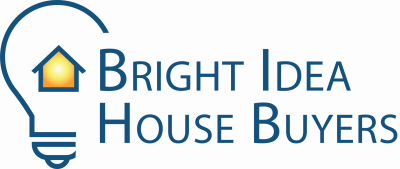
Within the real estate industry, the terms “foreclosure” and “preforeclosure” are commonly used, but they possess distinct meanings and implications for both homeowners and potential buyers.
Understanding Foreclosure
Foreclosure refers to the legal process triggered when a homeowner becomes unable to meet their mortgage payments. If a homeowner falls behind on their mortgage, the lender has the authority to initiate foreclosure proceedings, potentially resulting in the loss of the property. Foreclosure holds significant gravity and can have enduring ramifications for homeowners, including adverse effects on their credit score and challenges in securing future loans.
Exploring Preforeclosure
In contrast, preforeclosure represents a timeframe preceding the commencement of foreclosure proceedings. During this stage, homeowners have fallen behind on their mortgage payments, yet the lender has not yet initiated the foreclosure process. Preforeclosure presents an opportunity for homeowners to collaborate with their lender, seeking potential resolutions for their financial difficulties, such as loan modifications or short sales. It provides a window for proactive measures before foreclosure becomes imminent.
The Timelines of Foreclosure & Preforeclosure
A notable distinction between foreclosure and preforeclosure lies in their respective timelines. Foreclosure entails a protracted legal process that can span several months or even years before reaching completion. Throughout this duration, the homeowner may have the chance to remain in the property and devise plans to catch up on their mortgage payments. However, once the foreclosure process concludes, the homeowner will be compelled to vacate the premises.
Conversely, preforeclosure is a relatively shorter time frame. Typically lasting only a few months, preforeclosure occurs prior to the lender initiating foreclosure proceedings. During this period, homeowners may have an opportunity to collaborate with their lender in search of a solution for their financial challenges. However, if a viable resolution is not achieved, the homeowner remains at risk of losing their home.
Long Term Consequences
Differentiating between foreclosure and preforeclosure also entails considering their long-term effects on the homeowner, particularly in relation to their credit score. Foreclosure, being a significant event, can severely impact the homeowner’s credit score, leading to difficulties in obtaining future loans or credit. Moreover, it can result in higher interest rates and fees, further impeding financial prospects.
Conversely, preforeclosure may have a comparatively lesser impact on the homeowner’s credit score. While falling behind on mortgage payments can still have negative implications, actively working with the lender to find a resolution during this stage can help alleviate some of the credit damage.
It is important for homeowners to recognize the potential consequences of both foreclosure and preforeclosure on their creditworthiness and take appropriate measures to address their financial challenges.
Purchasing Properties in Foreclosure or Preforeclosure
For prospective buyers, it is crucial to acknowledge the significant distinctions between foreclosure and preforeclosure. Foreclosed properties are commonly sold through auctions, necessitating buyers to be prepared to provide cash or secure financing promptly to acquire the property. Furthermore, buyers may encounter challenges such as liens, unpaid taxes, or eviction issues that need to be addressed.
In contrast, preforeclosed properties may be available for sale via a short sale. During a short sale, the homeowner sells the property for less than the outstanding mortgage balance, with the lender agreeing to accept the proceeds as full payment. Short sales can present attractive opportunities for buyers seeking favorable deals, although they can also be time-consuming and unpredictable in nature.
It is important to recognize that foreclosure and preforeclosure are distinct terms, each carrying unique implications for homeowners and potential buyers. Foreclosure represents a legal process that can culminate in the loss of a home, leaving enduring negative impacts on the homeowner’s credit score. Preforeclosure, on the other hand, designates a period before foreclosure proceedings commence, offering homeowners a chance to collaborate with their lender in seeking resolutions for their financial hardships. For potential buyers, understanding the differences between foreclosed and preforeclosed properties is vital, as the former are typically auctioned while the latter may be accessible through short sales. This comprehension empowers homeowners and buyers to make informed decisions regarding their real estate options.
Exploring Available Choices
To prevent your house from entering foreclosure, you have two main options: either part ways with the property or explore avenues to enhance your income, enabling you to better manage your mortgage payments. It is important to acknowledge that owning a home should not be a monthly struggle; instead, it should instill a sense of confidence and security. If your mortgage has become overwhelming, it may be prudent to consider alternative solutions.
How Bright Idea House Buyers Can Help With Foreclosure
If you find yourself facing challenges with your monthly mortgage payments, Bright Idea House Buyers is here to offer a solution. We specialize in purchasing properties outright, providing you with an offer and closing on the property at your convenience. Our goal at Bright Idea House Buyers is to assist local homeowners in permanently resolving their difficult situations. If you are struggling to afford a house that has become burdensome, don’t hesitate to reach out to our team today. We are eager to provide you with information about the available options and address any inquiries you may have regarding the process. Contact us at (424) 625-7026 for personalized assistance.
